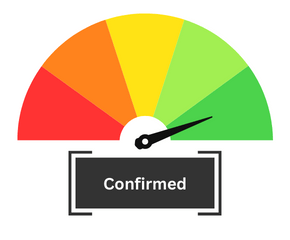Hi folks, today I feel very proud to announce to you that we are initiating a new category on our blog which is about “Google Ranking Factors”.
Here we will cover all the topics we think could be a google ranking factor and clear all the myths and debates.
In this guide, we will learn about whether content freshness is a Google ranking factor or not, as it is an ongoing discussion between SEOs and content marketers.
So, let’s start.
Table of Contents
What is Fresh Content?
Fresh content means the type of content that is recently published or updated.
On the other hand, stale content is a type of content that has not been updated for a long time.
The connection between freshness and frequency
So why do people link freshness with frequency? The answer lies in Google’s 2009 Caffeine update.
This update was made to enhance the indexing of new pages.
As a result, Google was now able to continuously update its index rather than doing so every couple of weeks.
For example – If I post content daily google will devote more of its resources to my website daily.
In simple terms, the frequency will ensure my website gets crawled more often.
The Claim: Fresh Content As A Ranking Factor
In response to a few significant Google updates, there was some initial suspicion that fresh content would be a ranking component, but it has since grown into a significant claim.
A few years before Google’s Caffeine update, the concept of “fresh content” was first introduced.
In the year 2007, a New York Times reporter was allowed to spend a day with Amit Singhal (Senior VP of Search at the time).
During this period, Singhal publicly discussed the approach he had created to solve the “freshness problem.”
It was a new algorithm that attempted to discover when users desired and when they did not desire additional information.
And like we know Google is a master in giving nicknames, this too had a catchy one “QDF” for “query deserves freshness.”
Caffeine 2009 (The First Google Update)
It all started in 2009 when Google came up with a new algorithm update which is called the Google Caffeine update of 2009.
Google said:
Caffeine lets us index web pages on an enormous scale.
In normal words, Caffeine allowed Google to crawl much faster, thus delivering fresher results from a much larger index.
This rollout was completed in 2010 June beginning the freshness content myth.
Google said: Caffeine brought “50 percent fresher results for web searches”
The Google caffeine update has nothing to do with rankings. Its main focus is indexing.
Rankings and indexing are two very different things.
It was the Freshness update that affected Google’s ranking algorithm.
The thing is, unfortunately, that many SEOs/digital marketers got it all wrong because Google used the phrase “fresher results” since then till today it is referred to as the Freshness Update.
The Second Google Update (Freshness)
Four years after the New York Times piece first appeared, in November 2011, Google announced a “Freshness update.”
In the announcement titled, “Giving you fresher, more recent search results,” Google explained that this was a significant improvement to the ranking algorithm and noticeably impacts 6 to 10% of searches.
But, “freshness” does not universally apply to all search terms.
The goal of Google’s Freshness algorithm is to provide trending information for trending keywords that fall under QDF.
The Proof: Fresh Content As A Ranking Factor
We must understand two things to determine whether “fresh content” is a ranking factor or not: what the “Freshness” algorithm means and how they impact search results.
QDF
QDF stands for Query deserves freshness.
Google divided fresh content into three categories in 2011:
- Recent events or hot topics.
- Regularly recurring events.
- Frequent updates.
Recent events or hot topics – Such as natural calamity or a famous person’s news.
Regularly recurring events – Such as tv shows, elections, etc.
Frequent updates – Such as product/gadget-related information
We can say that to recognize when a user is looking for more recent information, Google introduced the Freshness update.
Note: However, “freshness” does not universally apply to all search queries
Google Officials On Fresh Content:
Do we have an official answer from Google? Yes! We Do.
Does Google favour fresh content?
This was the question John Mueller was asked and he replied:
Does Google favor “fresh” content?
— Dr. Analytics Ninja, PhD (@AnalyticsNinja) August 18, 2018
No
— johnmu is not a chatbot yet 🐀 (@JohnMu) August 18, 2018
Our Verdict: Fresh Content Is A Confirmed Ranking Factor But For Some Queries Only
Yes, the freshness of content is a ranking factor but only when the query requires it.
But does this suggest that outdated websites will be penalised? Obviously not! Both new and old content can be found in the search results,
In fact, when it comes to search queries that are not dependent on time, it was found that older content normally performs well:




